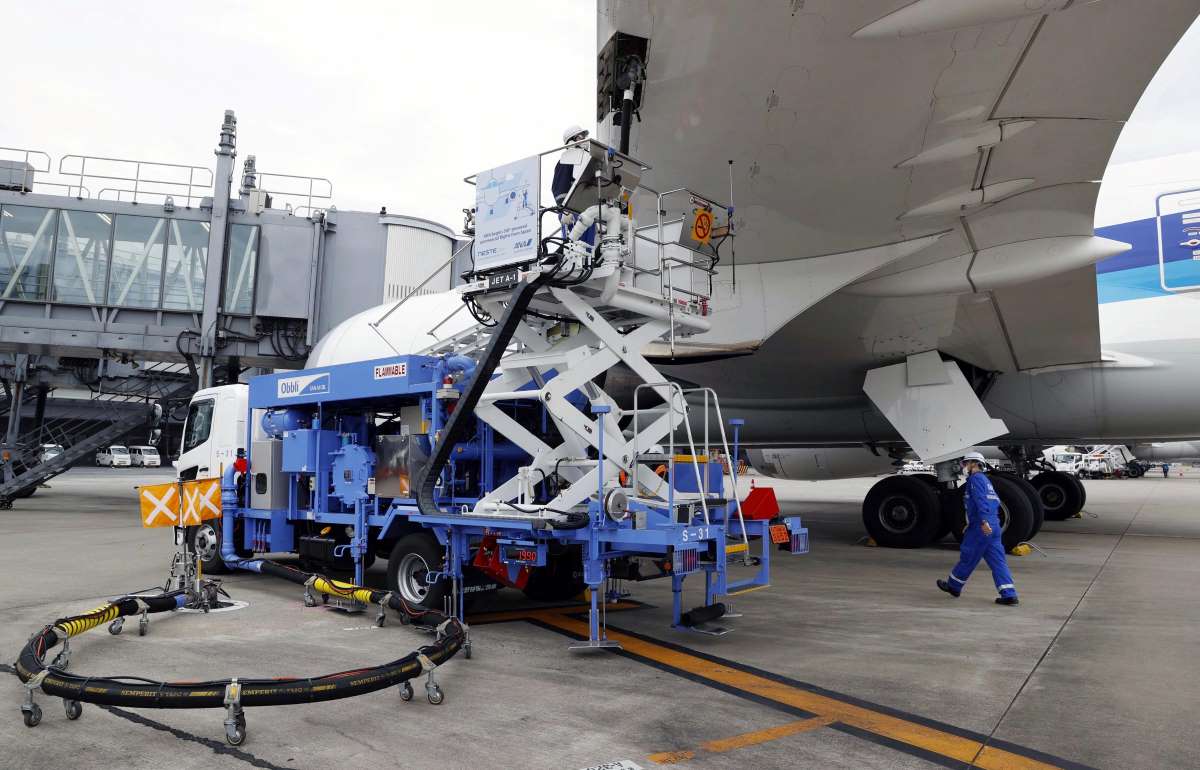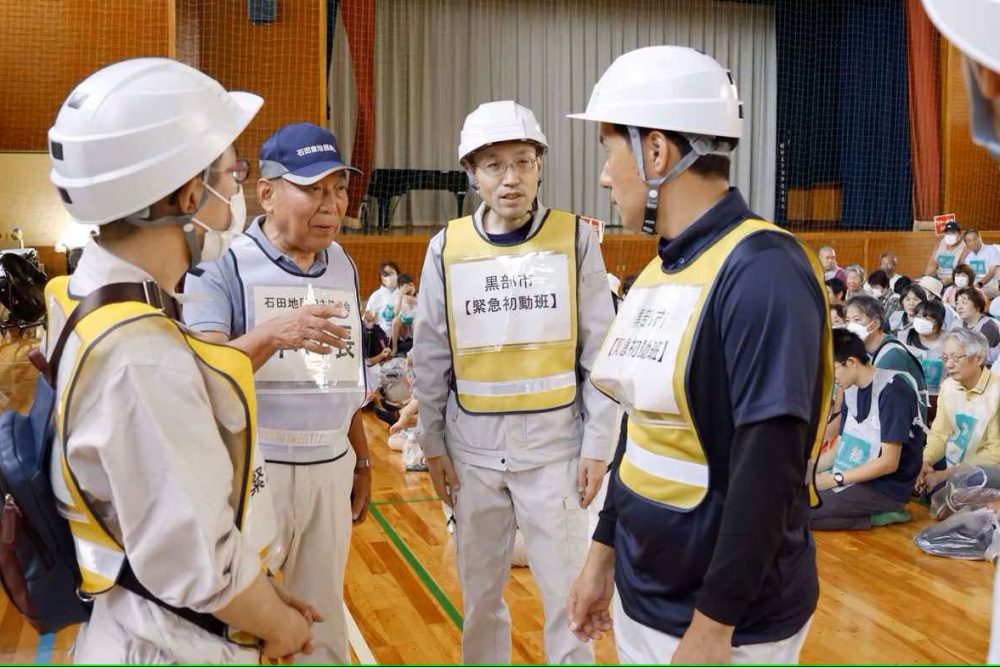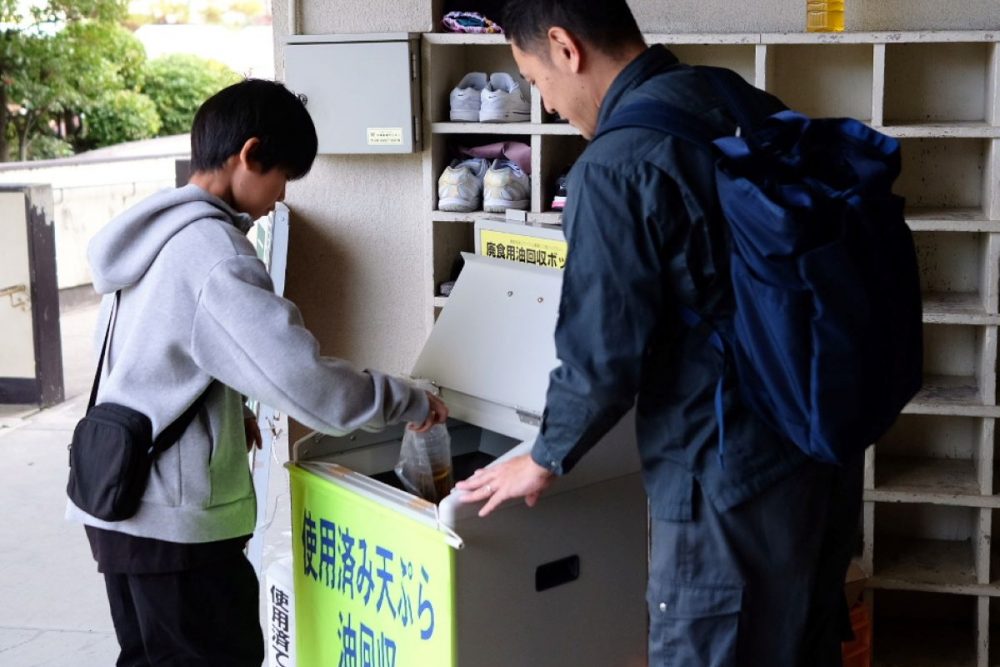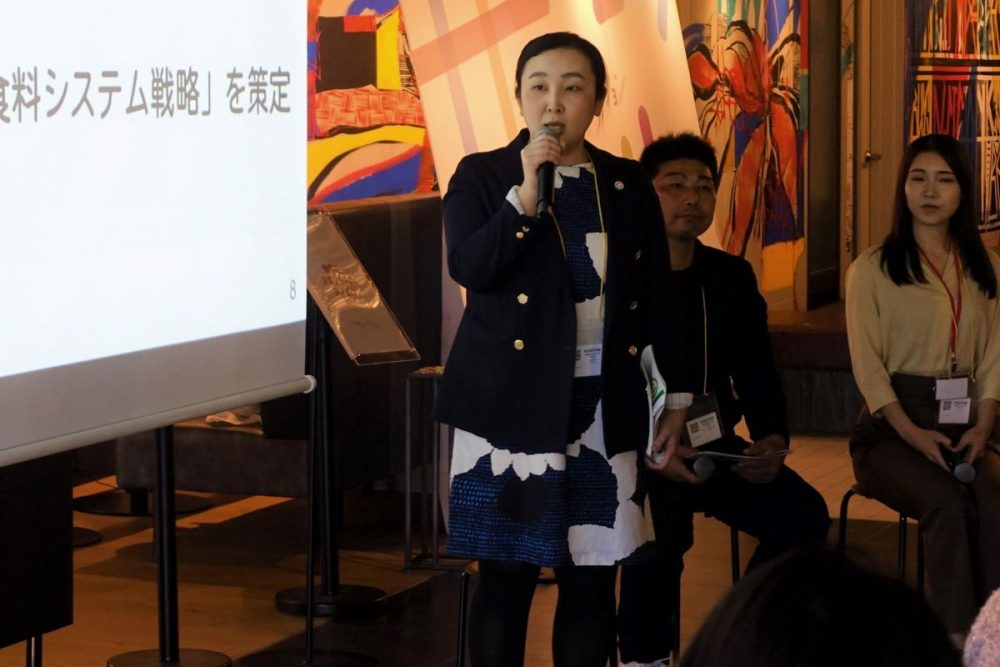Used Cooking Oil: Major Players in Japan Compete with Foreign Companies for Supply
Fierce competition and rising prices for exports of used cooking oil from Japan are linked to the growing demand for alternative aviation fuels like SAF.

このページを 日本語 で読む
On November 24, real estate giant Mitsubishi Estate Co. and JGC Holdings Corp., a major company in plant engineering, announced an agreement to collaborate on the collection of used cooking oil (UCO). The two firms aim to commercialize sustainable aviation fuel (SAF), which has a low environmental impact. SAF can be made from plant-based UCOs, including tempura oil.
Securing the raw material is said to be the biggest hurdle. The type of SAF that JGC Holdings is working to develop from UCO leads in the race for commercialization. But securing suppliers of raw materials “still requires efforts,” according to a company representative.
The quality of waste oil coming from Japan has led to strong demand from overseas SAF businesses. This intensified competition is resulting in higher prices.
Used Cooking Oil Price Rises Sharply
Masato Shiomi, executive director of UCO Japan, a business association for companies working in the collection of waste oil, explained the current state of affairs. "Growing exports have resulted in an insufficient supply to those who need UCO domestically," he said.
According to UCO Japan, 380,000 tons of used cooking oil was collected and processed in Japan in fiscal year 2021. Of this, 250,000 tons was used as raw material for livestock feed, ink, and other products. The remaining 130,000 tons was used as raw material for fuel, of which an overwhelming 120,000 tons was exported overseas. Amounting to nearly one-third of the total oil collected, exported UCO increased by 30,000 tons from 2020's figure (90,000 tons).
The trend was exacerbated by a decreased supply from restaurants amid the COVID-19 pandemic. The export price per kilogram soared from ¥78.7 JPY in January 2021 to ¥199.1 JPY in October of 2022, a 2.5-fold increase. While domestic trade prices have also been on the rise, exports are priced even higher.
Waste or Commodity?
In Japan, used cooking oil is considered 'waste' and collected free of charge by licensed companies under the Waste Management and Public Cleansing Law.
However, Shiomi points out that "unlicensed companies are attempting to take advantage of rising prices and demand from the SAF industry. They are circumventing the law and buying the oil as a commodity instead of collecting it as waste." This, he says, has spurred the price increase.

Due to superior refining, transportation, and processing technologies, Japanese used cooking oil is of high quality. According to a transportation industry representative, UCO becoming a commodity is inevitable in the current environment where foreign firms are competing for the oil.
JGC Holdings' collection business will involve a certain amount of fees. But a company representative asserts: "Our emphasis will be on local production for local consumption, rather than putting a price on used cooking oil. We want everyone to understand this importance."
Ryuichi Kurokawa, chief researcher at Japan Transport and Tourism Research Institute (JTTRI), points out that there is a limit to the amount of UCO that can be procured. Likewise, he notes that only a small amount can be converted to SAF.
According to Kurokawa, Japan should consider procuring from other Asian countries for the time being. "Meanwhile, we should aim to commercialize highly-efficient SAF made from hydrogen and carbon dioxide. We must promote its development at the same time," he urges.
このページを 日本語 で読む










